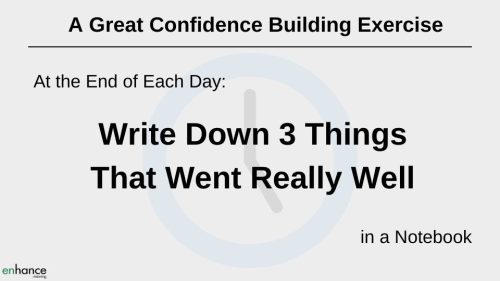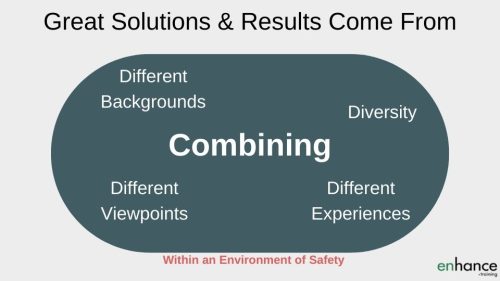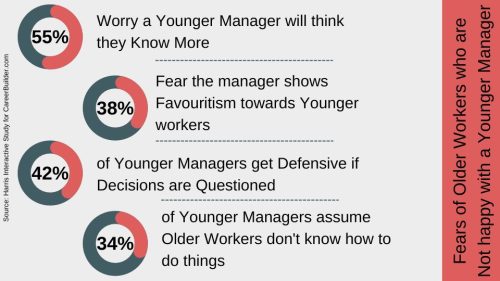5 Tips to Successfully Manage Older Team Members

It can be pretty nerve racking and intimidating to manage team members significantly older than you. You might be a new manager or have a new team to manage. You might worry they think you are too young or inexperienced to do your role. There may even be resentment towards you. Or the older team members may fear how a younger manager may treat them. As more older employees stay in the workforce longer, managing large age gaps is becoming more common.
There will be many reasons why you are in the manager position. Older and more experienced doesn’t necessarily mean they know what you know or have the skills you have.
Help older team members feel valued and contributing to the success of the team in a considered and supportive way and you will make your job of managing older team members a lot easier.
Towards the end of the article I share some very interesting stats that frame the importance of being happy and skilled at managing older employees.
5 Tips to Successfully Manage Older Team Members
- Relationships matter
- Treat everyone in the team equally
- Remind yourself of the value you bring
- Keep an open mind and respect the differences
- Leverage Older Team Members’ Experience
Watch on YouTube
Listen on Podcast
Relationships Matter – The first tip to successfully manage older team members
Your relationship with each of your team members matters. It really doesn’t matter if they are younger, older, similar to you or very different. To be a good manager to them, you must build a genuine trusting relationship with them.
So be genuine – be yourself. Show genuine interest in the older team members. Ask them lots of questions to get them talking about themselves, what they do outside of work, what are the challenges of their job, what they would change at work and what their ambitions are.
Get to know them. Work out what you admire about them and show that admiration. Compliment them.
Be humble and respect the older team members’ achievements. The more you value the older employees, the more at ease you will put them and the more likely a genuine trusting relationship will be built.
Look for some quick wins to reduce the older employees’ pain points. Taking proactive action to make their lives easier does wonders for relationship building.
Find areas of common interest and have fun talking about them together. Employ all your relationship building skills when you manage older workers as you would with any other team member.

Treat everyone equally – The second tip when managing older team members
It is so important to be consistent when being a manager. Your decisions and actions are sending unspoken messages to the team which they are absolutely paying attention to. Being consistent in your decisions and action establishes the rules for the team and constantly reinforces them.
Make sure your actions and decisions towards older team members is consistent with the other team members. Consistency will make them feel that you don’t have a problem with older people, that you are a person that they can trust.
Communicate with an open style and communicate often. Set expectations for everyone in the team clearly and be consistent with your expectations.
Expect all team member to meet mutually agreed expectations and work hard to support all your team members in reaching the goals set out. A really useful approach is to book in weekly one-on-one meetings with each of your team. Use the meetings to develop, mentor, feedback and learn.
Treat everyone equally in everything you do.
Remind yourself of the value you bring – The third tip to successfully manage older team members
Keep reminding yourself of all your achievements that have progressed your career to this point. Reminder yourself of all the hard work you have put in, all the skills you have practiced day in day out to develop.
Don’t feel like you need to be an expert at all the jobs your team does. You don’t have to be able to tell your team the answers.
Be confident in yourself. Your job is to get the best out of the team; to deliver value to the company through others. The rest of the team doesn’t have your management skills.
A great exercise to build confidence – at the end of each day, in a notebook, write down 3 things that went really well. The act of thinking about the positive things will remind you of what you have achieved. Looking back on weeks of achievements little or large builds a lot of confidence.
Be confident in your skills and use those skills to help the team achieve great results.

Keep an open mind and respect the differences – The fourth tip when managing older team members
A study published in the Journal of Organizational Behavior found that most workers with younger managers reported having more negative emotions, such as anger and fear, than those with older bosses.
Older workers who are not happy, cite reasons such as the younger manager thinking they know more, or they show favouritism towards younger workers or don’t like their decisions being questioned.
When managing older team members, don’t assume they lack energy, or the desire to learn. Keep an open mind and find out what the older team members are interested in, what their ambitions are and how you can support them achieving those ambitions.
Find out what you can learn from them. Work out how you can use their depth or breadth of experience in helping the team perform. Treat older workers as a great source of knowledge and experience in their areas that you have available to you and the team.
Also work out with them, what development and learning opportunities they are interested in just as you would for the rest of the team. You have skills and experience to share.
Keep an open mind and respect the differences between all team members.
Leverage Older Team Members’ Experience – The fifth tip to successfully manage older team members
The older team members have a lot of experience. Learn about their experience by asking questions and getting them to tell you about what they have done and seen.
For instance, they may has seen successive managers try to implement a new process that just didn’t work. Knowing this and finding out why it didn’t work will save you making the same mistakes again.
Older team members will have different skills and experience compared to you. How can you use these for the benefit of the team? What can you personally learn from them too? There is truth in the saying that it is hard to teach new dogs the old tricks.
Strong teams make good use of all the differences within the team, as well as the similarities. It is different backgrounds, different viewpoints, different experiences combined within an environment of safety that brings great solutions and great results.
Find and understand the differences the older team members have with you and others and use their strengths and experience.

The Stats
A few stats to frame the challenges in managing older employees:
40% of US Workers have a younger boss. 6% of US Worker have a boss more than 10 years their junior and these numbers will grow with an ageing workforce.
Some of the fears of older workers who are not happy with a younger boss:
- 55% worry that a younger manager will think they know more
- 38% fear that the manager shows favouritism towards younger workers
- 42% of managers get defensive if decisions are questioned
- 34% of manager assume I don’t know how to do things
The fastest growing age demographic of employees in the workplace is 65 years and older.
Getting comfortable and skilled at managing older workers will only get more important.

In summary
In short, manage older team members in the same way as you manage everyone else in the team. There are more barriers to break down – both in your own mind and in theirs. Make the older employees feel valued by finding and using their extra experience and skills to help the team deliver more.
Use these 5 tips to successfully manage older team members.
- Relationships matter
- Treat everyone in the team equally
- Remind yourself of the value you bring
- Keep an open mind and respect the differences
- Leverage Older Team Members’ Experience
Older team members have a lot to offer you and the team – make best use of their experience and skills.
It is nerve racking when you first manage older team members particularly if there is a big gulf in age. Being confidence in yourself and what you can provide to the team makes a massive difference in positively reacting to older team members.
If you are confident in yourself and you are interested in what older team members can provide, any barriers of perception are quickly removed.
Enjoy working with older team members – they have a lot to offer!
Jess






